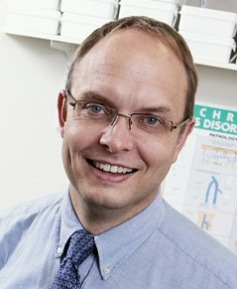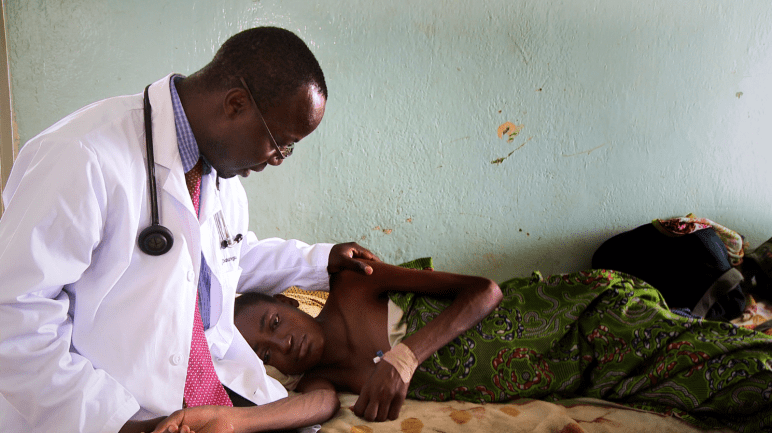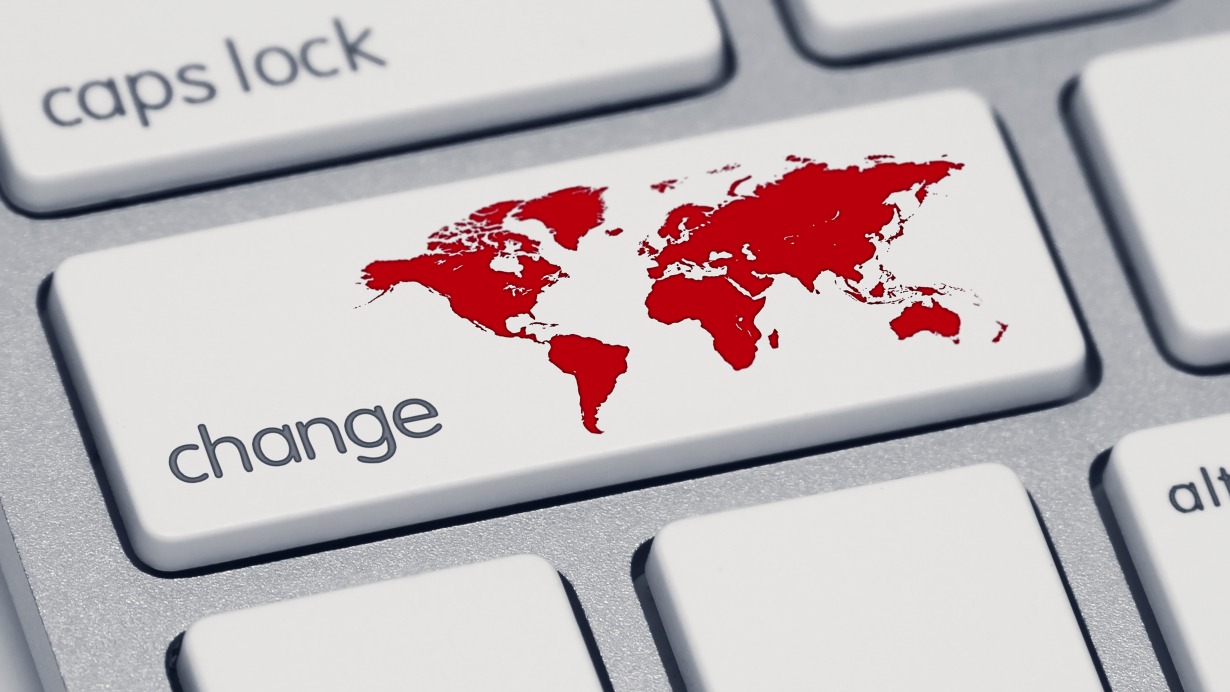
Fund the training of a doctor from a developing country. Your donation saves lives, treats illness and restores health for years to come.
By Dr. Mark Crowther,
International Outreach Program (Past Chairman of the Board of Directors)
How do you save the life of someone half a world away who will contract a fatal disease 10 years from now? By doing something today.
Let me show you how, by telling you the story of Dr. Henry Ddungu.
Henry lives in Uganda, a country in Sub-Saharan Africa, with a population the same size as Canada’s. Henry is a hematologist, a doctor who specializes in diseases of the blood, particularly blood cancers.
In Uganda, blood cancers are common. The most common one is lymphoma, a cancer of the immune system. In Canada, lymphoma is treatable and curable. But in Uganda, until recently, lymphoma was fatal, and fatal for a simple reason—Uganda didn’t have any hematologists who were trained to treat lymphomas.
But all of that changed over 10 years ago, when Henry came to Hamilton with the International Outreach Program to study hematology at McMaster University. He learned academic knowledge at the Faculty of Health Sciences, and he learned clinical skills at area hospitals.
Today, Henry is the deputy director of the Uganda Cancer Institute. Because of his time spent in Canada with the International Outreach Program, patients in Uganda now receive treatment for lymphoma and other blood cancers. All four of the country’s hematologists trained in Hamilton with the International Outreach Program.
Essentially, every single person in Uganda who receives complex hematologic care today does so as a direct result of the International Outreach Program, and as a direct result of the donations that folks just like you made to the program 10 years ago.
And that’s why I’m writing to you today. I need you to support the International Outreach Program with a donation that will bring another resident or clinical fellow to Canada for medical training. Your gift today will change lives 10 years from now.
As you know, the International Outreach Program is a program run through the St. Joseph’s Health System. The Program is designed to increase capacity for health care delivery in developing nations. We take selected trainees from countries in the developing world, including Haiti, Guyana and Uganda, and bring them to Hamilton and other local cities for focused training for a period of between three months to a year.
Increasing capacity is fundamental. Here’s why. It’s very easy for somebody like me as a practicing hematologist and clinician to go to Uganda, do a clinic for a couple of weeks, and then leave. But when I leave, I only leave behind the information gleaned by those present during my stay.
To make a lasting change, we bring physicians here instead. They gain the academic knowledge and clinical skills they need to prevent illness, restore health, save lives—and train other doctors to do the same. Our trainees also acquire leadership, communication, negotiation and teaching skills that help them generate lasting change in their communities and countries.
So instead of getting one or two weeks of my time on the ground in Uganda, the people of Uganda get a lasting legacy from our ability to train doctors, who train other doctors.
When you donate to the International Outreach Program, you donate a doctor. It costs money to bring physicians here from the developing nations that we work in. Your donation is used directly to support the training of these doctors.
The training is free, and the doctors we train do not receive any salary. Your gift brings each trainee to Canada, and provides the housing, food, transportation, licensing, insurance and other things needed for a person to live here for up to a year away from home.
I encourage you to donate to the International Outreach Program this Christmas for a very simple reason. Your gift increases the number of physicians and allied health care professionals in developing nations who will come to Canada for training, and then pass that training on to others.
A dollar donated to a hospital in Canada funds a building or a new piece of machinery. But a dollar donated to the International Outreach Program lives on by training doctors who are going to provide care to many patients over many years, and, more importantly, are going to train other doctors to follow in their footsteps.
With your gift to the International Outreach Program, you create a lasting legacy with your money, one that lasts 10 years or longer. Just ask the patients of Dr. Henry Ddungu, who are receiving life-saving care today because of medical training that Henry received in Canada 10 years ago

Why should you donate a doctor to a developing country? Here are 10 reasons.
- In many developing countries, there is only one doctor for every 100,000 people. That’s like the City of Hamilton having just five doctors.
- More than 400 million people worldwide lack access to a doctor. The majority of these people live in 57 of the poorest countries.
- Because of the doctor shortage in developing countries, millions of people die annually from medical conditions that are preventable and treatable. These include measles, tuberculosis and complications of pregnancy and childbirth.
- Training one doctor at McMaster University and area hospitals has an exponential effect on healthcare back home in their developing country. Graduates of our program train other doctors, who then train other doctors.
- Bringing a doctor to Hamilton or Niagara Region for training through the International Outreach Program gives them a unique experience. Other programs offer observerships only. Our program delivers complete, hands-on training.
- Donating a piece of medical equipment to a developing country is a fine gesture — until that equipment breaks. But donating a doctor makes an impact on health for multiple generations into the future.
- Doctors who graduate from our program return home with leadership, communication, negotiation and teaching skills that help them generate lasting change in their communities.
- Donating a doctor saves lives. One obstetrician who trained with us returned to Uganda and quickly changed the way high-risk mothers were monitored after they gave birth. Her initiative saved around 130 mothers lives in the first year, and has saved around 1,000 lives to date.
- Donating a doctor to a developing country gives them what they need. Not what we in so-called “developed countries” think they need, but what they tell us, year after year, they need.
- Donating a doctor gives you the largest return on your donated dollar. Your investment grows exponentially as your gift restores health and saves lives in families, then communities, then regions, then the entire country.

